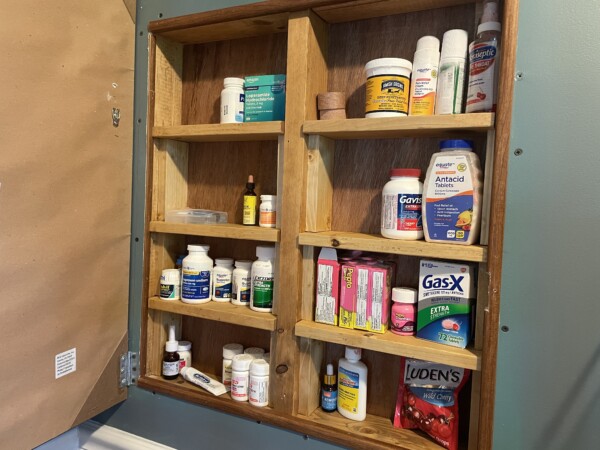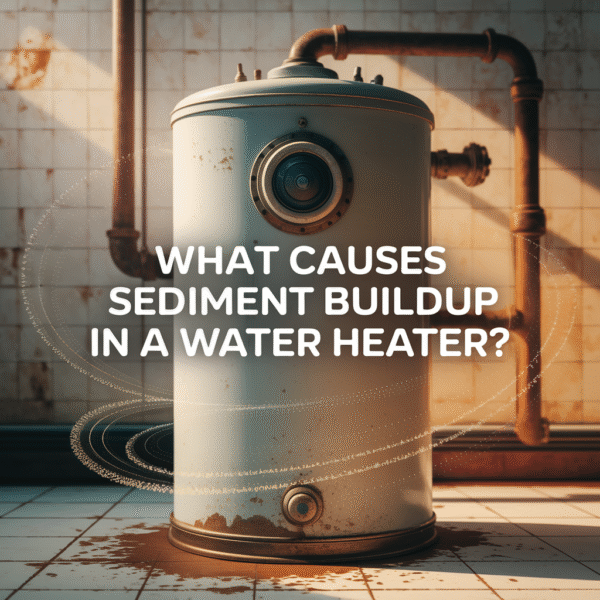
What That Water Heater Popping Sound Is Trying To Tell You
You know that sound your water heater’s making? That loud pop-pop-pop that almost sounds like a pot of boiling spaghetti?
Yeah — I heard it too. At first, I ignored it. I figured it was just “old house noises” or maybe the pipes settling. But after a while, it got louder, more consistent, and let’s be honest… kinda concerning. That popping noise didn’t sound healthy. It sounded like something was about to give out.
Turns out, it was trying to tell me something — and I’m glad I finally listened.
If you’re hearing a popping sound from your water heater, don’t panic. You’re probably not looking at a full system failure (yet). But you are getting a pretty clear warning. In this post, I’ll explain what’s really going on inside your tank, how I fixed mine, and how to stop the popping noise for good.
Or if you want the exact guide I followed, head over here 👉 🔥 Why your water heater makes popping noises — and how to fix it.
When I First Heard the Popping Sound
The first time I noticed it was while doing laundry. I had the washer running and was walking past the utility room when I heard this low bubbling sound — like a coffee pot, but louder and deeper. At first, I thought something was leaking. I even checked the floor around the tank. Dry.
But as the water heater kicked on again later that evening, there it was: pop-pop-pop.
After a little Googling (and ignoring it for another two weeks — bad idea), I finally figured out what was happening inside the tank. Spoiler alert: it wasn’t just noise. It was sediment buildup.
What’s Causing That Popping Sound in Your Water Heater?
Here’s the deal: over time, minerals like calcium and magnesium settle at the bottom of your water heater. This is especially common if you live in a hard water area — which, by the way, most of us in the U.S. do.
When the burner or heating element kicks on, it heats the water trapped under that layer of hardened sediment. And as that water gets hotter, it bubbles up through the crusty layer, making that exact popping or crackling noise you’re hearing.
Think of it like boiling water with a lid on the pot — pressure builds up, bubbles try to escape, and you get a popping sound.
Here’s a more detailed walkthrough of that process and what you can do about it 👉 💧 See exactly why this noise happens.
Why You Shouldn’t Ignore It
I get it — it’s just a little noise, right? Except it’s not just about the sound. That popping means your heater is:
- Working harder than it should
- Wasting energy
- Running less efficiently
- Wearing out the tank and heating element faster
If you ignore it for too long, that sediment can harden so much that it damages the tank from the inside out. I’ve even heard of people needing a full replacement because they let it go too far. Don’t let that be you.
What I Did to Fix It
After doing some digging, I figured out the best first step was to flush the water heater — basically drain out all the water (and sediment with it) to give the tank a clean slate.
Here’s how I did it in about 30 minutes:
- Turned off the power to the heater (breaker or gas)
- Shut off the cold water supply
- Attached a garden hose to the bottom valve
- Ran the hose to the yard and opened the drain valve
- Let it empty fully
- Briefly turned the cold water back on while draining to stir up leftover sediment
- Closed everything up, refilled, and turned the heater back on
And you know what? The popping sound was gone. Just like that.
Want the detailed step-by-step with extra tips I wish I’d known first? 👉 🛠️ Here’s the exact flushing guide I used.
How Often Should You Flush a Water Heater?
Once a year is the gold standard. If you have hard water like me? Every six months might be smarter. It’s an easy, low-cost way to keep your water heater healthy and quiet.
Regular flushing:
- Keeps your heater efficient
- Saves energy
- Helps your hot water last longer
- Can extend the life of the unit by years
What If Flushing Doesn’t Stop the Noise?
If you’ve flushed the heater and still hear popping, a few things might be going on:
- The sediment is hardened into thick scale — flushing alone won’t fix that
- The heating element is corroded or covered in buildup
- Your heater is older and near the end of its life
In some cases, you may need a deep clean with vinegar soaks or even replacement parts. But don’t jump to that yet — most popping issues are fixed with a simple flush.
Still unsure? This guide walks through those tougher cases too 👉 🌡️ Noisy heater troubleshooting tips.
Other Sounds You Might Hear (And What They Mean)
Not all weird heater sounds are created equal. Here’s a quick cheat sheet from my own experience:
- Popping = sediment buildup
- Sizzling or hissing = water leaking onto a hot element
- Tapping or ticking = expanding metal parts as the tank heats and cools
- Rumbling = serious sediment shifting around — flush ASAP
- No sound at all = check your power source — could be a dead element
Does a Popping Sound Mean I Need a New Heater?
Not necessarily. My heater was over 10 years old when I first heard the popping sound, and it’s still going strong today after a good flush.
But if your tank:
- Still pops after flushing
- Has a rusty or leaking base
- Doesn’t produce hot water like it used to
- Is over 15 years old…
…it might be time to start planning for a replacement.
Bottom Line: That Sound Is Your Warning Sign
Your water heater’s not just making noise for fun. That popping sound? It’s your tank begging for attention. The longer you wait, the more damage can build up — and trust me, dealing with a burst water heater is not how you want to spend your weekend.
If I hadn’t acted when I did, I might’ve ended up with a cold shower, a soaked floor, and a $1,000+ replacement. Instead, I got 30 quiet minutes with a hose and a garden spigot — and peace of mind.
Want to do the same? Follow the same guide I used 👉 🔧 Here’s how to stop the popping sound for good.
As an Amazon Associate we earn from qualifying purchases through some links in our articles.



